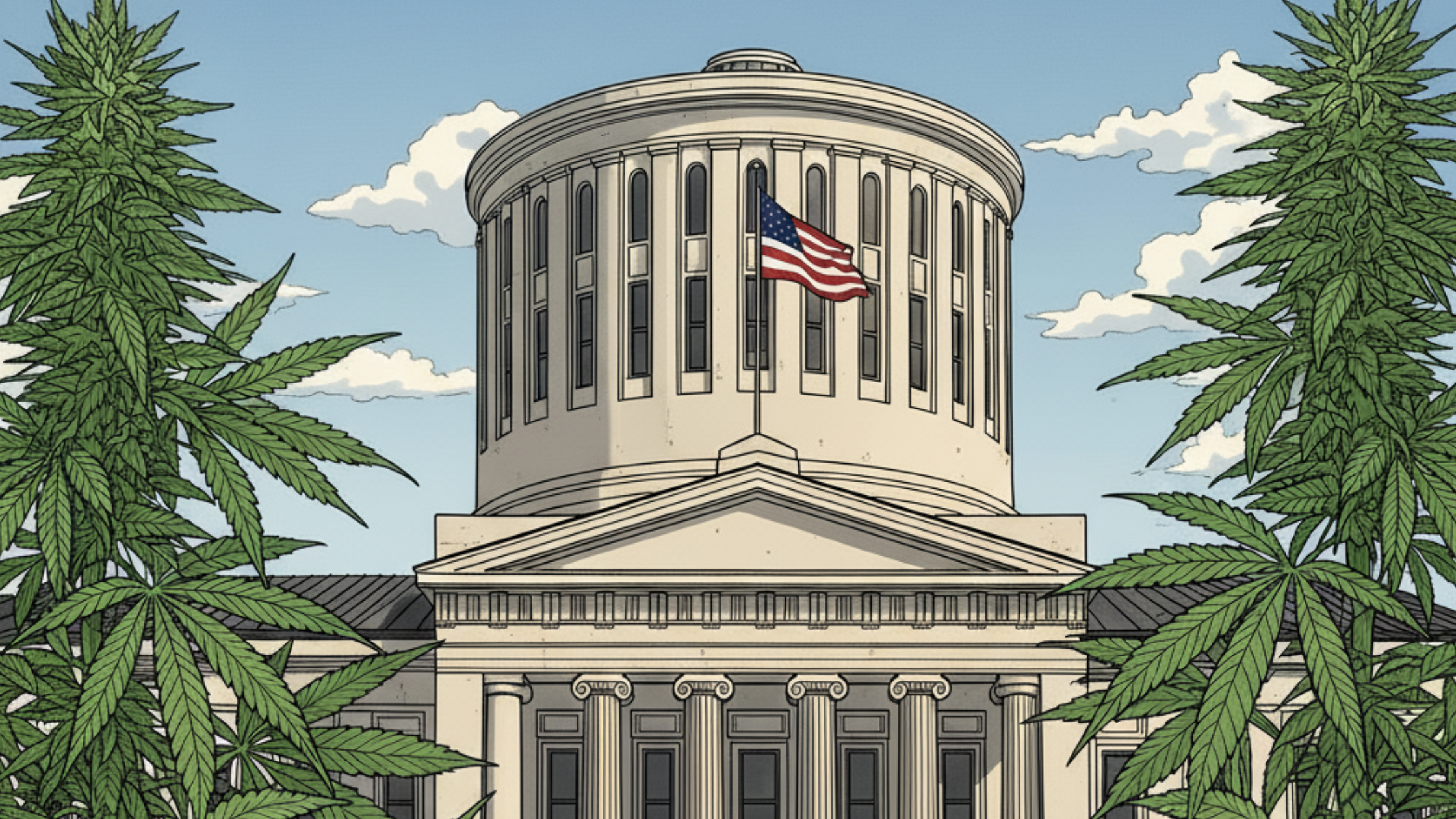
The Fight for Ohio’s Hemp Industry: Why Misguided Regulation Puts Our Future at Risk
The Fight for Ohio’s Hemp Industry: Why Misguided Regulation Puts Our Future at Risk
The Ohio Healthy Alternatives Association (OHAA) is on the front lines of a critical issue that threatens the very foundation of Ohio's burgeoning hemp industry. While the exact legislative bill numbers may shift from session to session, the persistent threat remains the same: legislation, often exemplified by proposals like the one referenced in prior news as "Senate Bill 266," is poised to do far more harm than good. While sensible regulation is a goal we can all support, the current language of these proposals could cripple small businesses, limit consumer choice, and push the market into an unregulated shadow economy. It's time to understand what's at stake and why OHAA is advocating for a smarter, science-based approach to hemp regulation.
The Flawed Premise: When Good Intentions Go Wrong
The stated goal of recent proposed legislation is to create a framework for the sale and testing of hemp-derived products, particularly those with intoxicating effects like delta-8 THC. However, the current drafts of these bills are often fundamentally flawed. Instead of creating a system that protects consumers and supports a thriving industry, they threaten to dismantle the progress made since the 2018 Farm Bill legalized hemp. The consequences could be dire, with hundreds of small businesses facing closure and thousands of jobs being put in jeopardy.
The proposals often reveal a fundamental misunderstanding of the science behind cannabinoids. By applying overly broad definitions, they create a regulatory maze that is impossible for small businesses to navigate and confusing for consumers. This isn't just a political issue; it's a matter of public health and economic viability.
The Flawed Science of Cannabinoid Definitions
The primary problem with these legislative proposals lies in their oversimplified and scientifically inaccurate approach. The language of bills like the one informally known as SB 266 often lumps nearly every form of THC, including non-intoxicating compounds, under the same umbrella as intoxicating ones. A perfect example is a proposed limit of just 0.5 mg of total non-delta-9 THC per package, which could effectively ban many products that pose no intoxicating risk whatsoever.
To truly understand this, consider the cannabinoid family. There are over 100 known cannabinoids, each with unique properties. Delta-9 THC is the primary intoxicating compound in marijuana. The 2018 Farm Bill established the legal distinction for hemp as cannabis with less than 0.3% Delta-9 THC by dry weight. Since then, innovators have created products using other, naturally occurring hemp-derived cannabinoids like Delta-8 THC, which has a similar but milder effect. Then there are beneficial, non-intoxicating compounds like Cannabidiol (CBD), Cannabinol (CBN), and Cannabigerol (CBG). These compounds are often used for wellness without any intoxicating effect.
Proposed legislation, by defining "intoxicating hemp products" so broadly, fails to differentiate. A blanket restriction based on total THC content, regardless of the compound or its effect, is akin to a state trying to regulate all grapes the same way—ignoring the crucial difference between a table grape and a wine grape. This misguided approach not only shows a lack of scientific understanding but also threatens to ban beneficial products that Ohioans rely on for their health and wellness. This creates an enormous risk for the future of Ohio's hemp industry.
A Staggering Economic Impact on Small Businesses
The economic vitality of Ohio’s hemp industry cannot be overstated. A 2023 report from Whitney Economics estimated that Ohio’s hemp-derived cannabinoid market could be worth nearly $705 million, supporting an estimated 8,157 jobs. These aren't just large corporations; they are small, family-owned farms, local processors, and Main Street retailers who have invested their livelihoods in this growing sector.
Proposed regulations, including the requirement for special licenses and the implementation of costly new testing and packaging rules, would impose a significant financial burden on these small enterprises. For many, these new costs would be impossible to absorb. As a result, they would be forced to close, eliminating jobs and consolidating the market into the hands of a few large companies. This not only stifles competition and innovation but also harms the very communities where these businesses are based.
For small farms, the potential loss of a cash crop like hemp would be devastating. Many farmers turned to hemp as a new source of revenue to keep their agricultural businesses afloat. Restrictive legislation could pull the rug out from under them, forcing them to return to less profitable crops or even leave farming altogether. This would be a tremendous loss for both the agricultural community and the state of Ohio’s economy.
The Looming Public Safety Crisis: Driving a New Black Market
Perhaps the most dangerous and ironic consequence of overly restrictive legislation is the creation of a new black market. The desire for these products will not simply disappear. By making legal, tested, and regulated products harder to obtain, the state will inadvertently push consumers toward unregulated, untested sources.
In the current legal market, consumers can be confident that the products they buy from a reputable retailer have been tested for potency and for dangerous contaminants like pesticides, heavy metals, and residual solvents. Without a clear and legal pathway for these products, consumers may turn to online sellers or illicit dealers. These unregulated products are not subject to any testing, meaning they could contain harmful substances and have wildly inaccurate potency levels, posing a significant public health risk. A well-regulated market is a safe market. Closing down the legal market does not solve the problem; it merely hides it and makes it more dangerous.
A Smarter Path Forward: Principles for Responsible Regulation
The good news is that with a few key changes, proposed legislation could be transformed from a destructive piece of legislation into a model for intelligent, science-based regulation. By working with legislators, industry leaders, and advocates, we can push for a bill that balances consumer safety with economic opportunity. This requires correcting the bill's core flaws, specifically its definitions and standards.
OHAA advocates for a bill that is built on the following principles:
-
Science-Based Definitions: Use a nuanced, science-based definition for cannabinoids that distinguishes between intoxicating and non-intoxicating compounds. This would allow for targeted regulation without banning safe, beneficial products.
-
Fair and Reasonable Potency Limits: Set realistic and safe potency standards based on credible research and industry best practices, rather than arbitrary numbers that would decimate the market.
-
Clear and Consistent Labeling Standards: Require clear and concise labeling that provides consumers with all the information they need, including potency, ingredients, and third-party lab results. This ensures transparency and consumer confidence.
-
Support for Small Businesses: Implement a tiered licensing structure that is affordable for small retailers and processors, rather than a one-size-fits-all approach that only large corporations can afford.
The goal is to create a market where safe, tested products are accessible to adult consumers, while also ensuring that Ohio's innovative and entrepreneurial spirit is not stifled. This is a critical moment for us to come together and make our voices heard.
Frequently Asked Questions
-
How is this different from Ohio's medical marijuana program? Ohio’s medical marijuana program is highly regulated, but it serves a specific patient population with a state-issued license. The hemp industry, by contrast, operates under the federal Farm Bill and serves the general adult consumer market. The proposed regulations would create an imbalance, potentially making hemp products subject to even more restrictive rules than those in the medical program.
-
Will this bill affect my CBD products? The language in proposed legislation is so broad that it could. If the bill’s definition of “intoxicating hemp products” includes a total THC content that’s too low, it could inadvertently affect products that contain naturally occurring trace amounts of THC, which is common in full-spectrum CBD oil. This is a major concern for both consumers and producers.
-
What is Delta-8 THC, and why is it so controversial? Delta-8 THC is a cannabinoid that is naturally present in hemp in very small amounts. It is often created by converting CBD into Delta-8 THC. It is chemically similar to Delta-9 THC and produces a milder psychoactive effect. It has become popular because it exists in a legal gray area under the Farm Bill, which only regulates Delta-9 THC. The controversy stems from this lack of specific regulation, which is why proponents of stricter laws want to regulate it heavily.
-
Are there other states with similar laws? Yes, several states have already passed or are considering similar legislation. However, many have learned from mistakes and are adopting a more balanced approach that focuses on consumer safety through testing and labeling, rather than an outright ban. Ohio has the opportunity to learn from these experiences and pass legislation that is a model for intelligent cannabis regulation.
-
What can I do to help? Your voice is crucial. The Ohio legislature needs to hear from constituents like you. Contact your state representatives and senators to share your concerns. You can also join OHAA and other advocacy groups in their efforts to push for sensible hemp regulation. Share this article on social media and with your friends. Your support can make a real difference in protecting Ohio’s hemp market and your access to these products.
Take Action Now: Protect Ohio’s Hemp Future
The future of Ohio’s hemp industry is in our hands. Don't let flawed legislation jeopardize the progress we've made. We must stand united to advocate for sensible, science-based regulation that protects both consumers and the small businesses that make up our vibrant community.
Join OHAA and contact your legislators today to demand a smarter approach to Ohio's hemp laws.
Share




